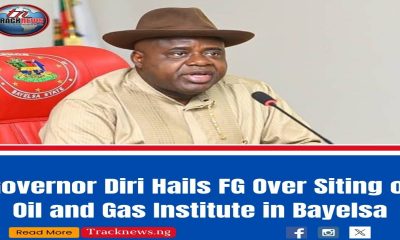Featured
ANAMBRA’s N109b DEBT HANDOVER

By Ifeanyichukwu Afuba
TRACKING_____Anambra State stood at a critical juncture on March 17, 2014 following the transition to a new government burdened with an outstanding debt transfer. Amidst the euphoria of great accomplishments, the outgoing Peter Obi administration bequeathed to the incoming Willie Obiano government the cash of N9b; N35b worth investments and a crushing N109b debt.
The scary debt profile was made up of different sources. It included money owed contractors on completed projects; CBN loans; rightful benefits denied some public servants and counterpart fund obligations. Another major plank of the inherited debt was transition phase contractual obligations.
Just months into its tenure the Obiano administration began to cough out funds for repayment of the inherited debts. In November 2014, it made available N2b to liquidate arrears of salary owed workers of the State Water Corporation and those of the defunct Anambra State Sanitation, Environment & Protection Agency over the past ten years. On Thursday, June 8, 2017 Governor Willie Obiano graciously brought to an end similar misfortune faced by two state owned media organisations.
Subsequently, the State Govt committed about N1b to clearing liability of National Light Newspaper and benefits of former staff of Anambra Broadcasting Service. The over – a – decade liabilities significantly accumulated in the eight year reign of Mr Peter Obi.
The debts arising from the last minute contracts awarded by the outgoing government were clearly avoidable. Hospitality, public buildings and road works do not fall under emergency services when the government had all of seven past years to execute them but did not. It was against the logic of transition when an outgoing government was supposed to be putting finishing touches to It’s operations for the Obi administration to have been preoccupied with fresh contract awards. These superfluous contracts were thus imposition on the incoming government.
How did the Peter Obi administration determine that it’s transition period projects will accord with the priorities of the successor Obiano administration? The transition – phase contracts running into tens of billions in cost was recognition – seeking; primarily a bid to make big, last minute impression. In the circumstance, the Obiano government had to accommodate the unplanned projects in the overall interest of the State. Rejection of the imposed contracts, though legitimate, would have meant a waste of the mobilization fund already paid out as well as further sanctions for violation of contract terms.
Yet, the new government’s inherited financial woes did not stop here. In another usurpation of the policy rights’ of the incoming government, the Peter Obi administration which hitherto enforced a strict embargo on employment, recruited 1000 workers into the State Public Service barely three months to the termination of its tenure. And by convention of public service process that takes three months to pay newly employed workers, the burden of remuneration was effectively transferred to the new government.
It is a measure of the Obiano administration’s fiscal management that in just a year, it had paid N38b of the inherited N109b debt. To date, some N80b of this crippling liability has been liquidated. It is noteworthy that this sapping debt management was achieved even as the Obiano administration increased salaries of workers and continued with the projects initiated by the past government. Altogether, scores of roads, hospitals, healthcare centres, shopping malls, classroom and government buildings, hospitality ventures inherited from the Obi administration have been delivered. Yet, the Obiano – led government stands out for the greatest number of legacy infrastructure executed by any administration since the state’s creation in 1991.
-

 Gist5 days ago
Gist5 days agoMy Boss Used To ‘KNACK’ My Wife After Sending Me On A Mission, To The Extent She Got… – Ex-soldier
-

 News4 days ago
News4 days agoCooking Gas Price Has Fallen
-

 Politics4 days ago
Politics4 days agoRevealed: What Access Bank Said About Its Dealings With Yahaya Bello
-

 News6 days ago
News6 days agoFake Reverend Sister Arrested With 38 Children
-

 News4 days ago
News4 days agoRead How Auxiliary Was Whisked Away By Masked Security Agents as Family member Speaks
-

 Sports3 days ago
Sports3 days agoFinidi agrees deal with NFF, names three foreign assistants
-

 Politics3 days ago
Politics3 days agoAtiku Says Tinubu’s Son Is A Director In Company Related To Coastal Road Contract
-

 News3 days ago
News3 days agoGovernor Diri Hails FG Over Siting of Oil and Gas Institute in Bayelsa




